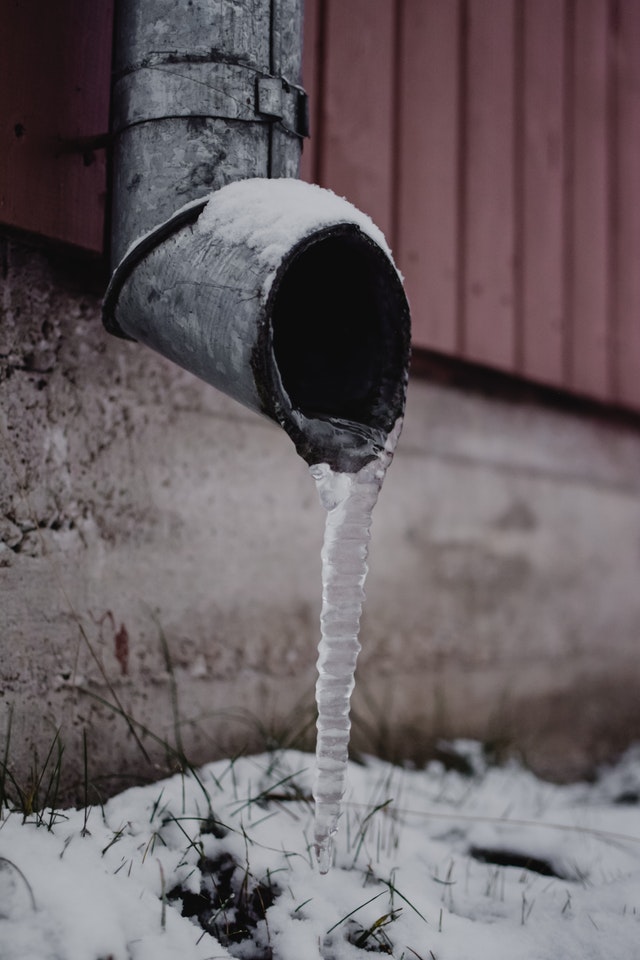
You may feel like you need to batten down the hatches when the cold weather comes knocking on your door. It’s time to say goodbye to warm, sunny days for months ahead. The last thing you need is trouble with your plumbing. Before the temperatures drop, consider 5 plumbing tips that will keep you from being caught off guard this winter.
1. Put Your Hose Away and Turn Off Outdoor Water Connections
There’s no need to keep your hose on hand during the colder months of the year. Any water in your hose will turn to ice, ruining your hose once the temperature hits the freezing mark. Worse yet, the ice in your hose could damage your pipes, causing a much bigger problem. Make sure there is no water in your hose before you store it in a safe place until spring. Don’t forget to turn the water off for all of your outdoor faucets to additional damage to your pipes.
2. Protect Your Pipes with Insulation
Check your home for any pipes that are at risk of freezing in the winter. The pipes in your garage, basement, under your sink, or attic may not have proper insulation. You can take extra steps to protect your pipes when you put fiberglass sleeves, foam rubber, or other types of insulation. As an added layer of protection, use heat tape or heat cable first.
3. Bring in Your Central Air Maintenance Team
Don’t forget to give your AC repair company a call for your routine maintenance at the end of the summer season. Water runs through a pipe in your central air conditioner unit which is linked into the drain in your home. Your HVAC technicians will ensure all water is drained from your AC system before the temperatures drop, preventing potential damage to your central air unit and indoor plumbing.
4. Let the Warm Air Get to Your Pipes
A cold snap can deliver a hard blow to your plumbing in the winter. At a minimum, you may have no running water for a few days. In a worst-case scenario, your pipes can break. You can prevent this problem by opening any of your cabinets that are concealing your plumbing. Typical locations include the bathroom and kitchen. You can also turn on a space heater in rooms where your pipes may be at risk. You can also turn on your faucets in tubs and sinks on the coldest nights. You only need a light stream of water to hold frozen pipes at bay.
5. Inspect Your Water Heater
While your HVAC technicians are taking care of your central air, ask them to take a look at your water heater. Water heaters typically last about ten years. If your unit is older or you don’t know when it was installed, it may be time for a replacement. Your HVAC team will look for any parts that may be worn. They can also clean out any residue that builds up inside the tank. Otherwise, your pipes could become clogged. You can also consider switching to a tankless water heater. It will last longer, making it worth the investment. You won’t have to wait for the water in your tank to warm up anymore. Your water will be at a comfortable temperature on demand. You’ll also be able to enjoy the additional benefit of keeping warm water running through your pipes when you are worried about a deep freeze.
Winter is coming whether you like it or not. The best you can do is be ready. Don’t put off your plumbing tips to the last minute. Cover your outdoor faucets. Take care of any irritating leaks in your tub or under the kitchen sink. That tiny nuisance could turn into something major when the temperatures drop. Don’t be thrifty when it comes to the thermostat in your home. Turning it down too low when you are gone for the day could open the door to frozen pipes. As a rule of thumb, keep the temperature at about 55 degrees. When in doubt about your plumbing, bring in the professionals. They’ll put your mind at ease by catching any problems as soon as possible.

